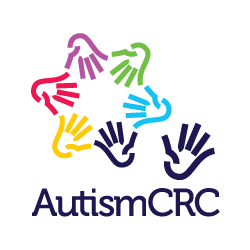UWA PLUS
Autism: diagnostic features and assessment approaches in children (6-16 years)
Students who undertake this micro-credential will gain the knowledge required to identify key diagnostic between neurotypical and neurodivergent development, in childhood (6-16 years) and to identify key diagnostic features of autism in school-aged children and adolescents. The course also considers the range of assessment methods and tools that may be used to gather clinical information required for an autism diagnostic assessment in children and young people, and explores the importance of this information for diagnostic evaluations.
Upon successful completion, you'll receive:
- Two PD Points - stackable for unspecified academic credit in award courses
- A Certificate of Achievement
- A UWA Plus Professional Development Transcript, listing all successfully completed micro-credentials
- Delivery mode
- Online - Self-paced learning
- Course dates
- Duration
- Self-paced flexible learning, but learners need to complete the course and attempt the test and quiz by the end of the teaching period in which they have enrolled
- Effort
- 50 hours
- Academic Lead
- Associate Professor Iliana Magiati
- Cost
- $726 inc. GST
- Critical information summary
- PSYCM513 Autism: Diagnostic Features and Assessment Approaches in Children (6-16 years) [PDF 246KB]

What you'll learn
Identify indicators of, and distinguish between, neurotypical and neurodivergent development in children and young people aged 6-16 years across a range of developmental domains
Identify and describe key diagnostic features of autism in children and young people aged 6-16 years
Identify the assessment methods and tools that may be used in diagnostic assessments for autism in children and young people aged 6-16 years
Apply knowledge of signs of autism and best practice autism diagnostic assessment in children and young people aged 6-16 years to a case scenario
Outline the clinical information that can be gathered from the different assessment approaches and explain why this information is important in diagnostic assessments for autism in children and young people aged 6-16 years

Why study this course?
This short course will provide students who are interested in autism assessment and diagnosis with an opportunity to gain a University micro-credential to recognise their learning. It also provides a unique opportunity for a range of professionals to enhance their knowledge of key diagnostic features of autism in adolescence and adulthood.
Recommended prior knowledge
It is recommended that students have English competence (ideally Year 12 English level), and have some direct experience working with children, adolescents and/or adults in a professional setting (e.g., school, mental health service, youth service).
Who should study this course?
This micro-credential will be of interest to anyone interested in autism diagnosis, including professionals and other stakeholders who come into contact with children and adults who may be autistic, and for whom formal assessment might be warranted.
This includes allied health professionals, such as practicing psychologists, speech pathologists, occupational therapists and social workers, medical professionals (e.g., GPs, paediatricians, psychiatrists) who regularly conduct autism assessments in the course of their practice, and other professionals who support children, adolescents and adults across different settings (e.g., mental health nurse practitioners, child health nurses, counsellors, other mental health practitioners, youth workers, educators, and others).
What's next after this course?
You may be interested in enrolling and completing one or more of our other autism diagnosis micro-credentials, also available through UWA Plus.
Learners who meet the admission requirements for the Graduate Certificate in Autism Diagnosis (GCAD) offered via The University of Western Australia may consider applying to the GCAD, which will equip students with the advanced knowledge and applied skills required to contribute to multidisciplinary diagnostic assessments for autism. Following the application and selection process, learners who are accepted and enrol in the GCAD will receive credit towards the first two units of the GCAD after successfully completing all seven of the autism diagnosis micro-credentials (PSYCM510, PSYCM511, PSYCM512, PSYCM513, PSYCM514, PSYCM515, and PSYCM516, which comprise GCAD units PSYC5520 and PSYC5521).
Please note that not all learners who enrol and complete the autism diagnosis micro-credentials are eligible to apply for the Graduate Certificate in Autism Diagnosis (GCAD). This is because the GCAD is developed to provide graduates trained in psychology, speech pathology, occupational therapy, paediatrics, or psychiatry with the specialist knowledge and applied skills required to participate in team-based diagnosis for autism. Therefore, acceptance into the GCAD is only available to learners who meet the course eligibility criteria following an application and selection process.
Industry endorsement
This micro-credential is part of a suite of seven credit bearing micro-credentials (CBMCs) developed by Autism CRC, with The University of Western Australia.


